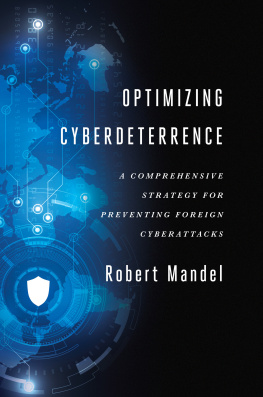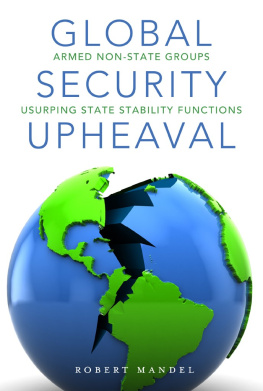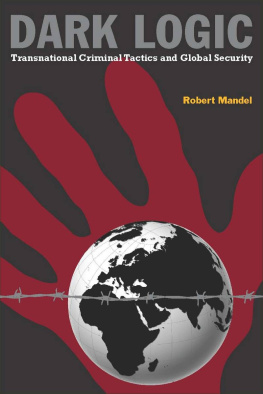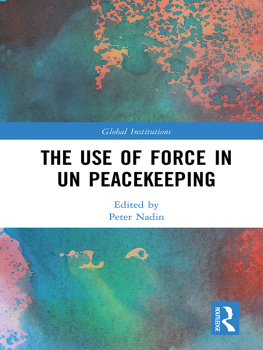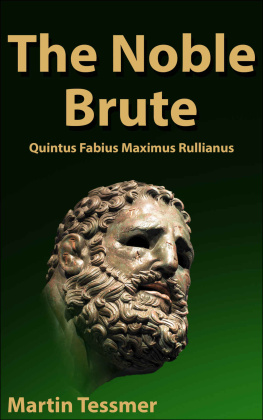Coercing Compliance
STATE-INITIATED BRUTE FORCE IN TODAYS WORLD
Robert Mandel
Stanford Security Studies
An Imprint of Stanford University Press
Stanford, California
Stanford University Press
Stanford, California
2015 by the Board of Trustees of the Leland Stanford Junior University.
All rights reserved.
No part of this book may be reproduced or transmitted in any form or by any means, electronic or mechanical, including photocopying and recording, or in any information storage or retrieval system without the prior written permission of Stanford University Press.
Printed in the United States of America on acid-free, archival-quality paper
Library of Congress Cataloging-in-Publication Data
Mandel, Robert, author.
Coercing compliance : state-initiated brute force in todays world / Robert Mandel.
pages cm
Includes bibliographical references and index.
ISBN 978-0-8047-9384-1 (cloth : alk. paper) ISBN 978-0-8047-9398-8 (pbk. : alk. paper)
1. Military policy. 2. War. 3. National security. 4. Internal security. 5. Security, International. 6. World politics21st century. I. Title.
UA11.M27 2015
355'.0335dc23
2014032174
ISBN 978-0-8047-9535-7 (electronic)
Typeset by Thompson Type in 10/14 Minion
The strongest and most effective force in guaranteeing the long-term maintenance of power is not violence in all the forms deployed by the dominant to control the dominated, but consent in all the forms in which the dominated acquiesce in their own domination.
Robert Frost
People sleep peaceably in their beds at night only because rough men stand ready to do violence on their behalf.
George Orwell
Speak softly, and carry a big stick.
Theodore Roosevelt
Nothing made by brute force lasts.
Robert Louis Stevenson
CONTENTS
TABLES AND FIGURES
ACKNOWLEDGMENTS
This studymy twelfth bookis the product of years of deep pondering. I have been fascinated by the theory and practice of brute force on a global scale for as far back as I can remember. Proper examination of this topic requires familiarity with many disparate bodies of literature and thus rarely can be executed successfully without outside help. I wish to thank my two undergraduate student research assistants, Olivia Armstrong and Ugyen Lhamo, for aiding with the case studies and for refining some key ideas. I appreciate the insights received from academic colleagues (including wonderful comments from Tony Burke of the University of New South Wales and encouragement from Heather Smith-Cannoy of Lewis & Clark College) and government defense officials. I wish to thank Geoffrey Burn at Stanford University Press for his usual classy expert shepherding of my manuscript in the long journey from its early stages to its polished final product. However, I take full responsibility for any egregious errors found in this volume.
This book is dedicated to two groups of valiant individuals: soldiers in the battle trenches who both apply force and cope with the devastation it can cause, and government policy makers who spend their lives wrestling with force complexities, especially strategic thinkers who analyze global force dispassionately. Regarding brute force, too often conclusions are reached and then emotionally defended before evidence is even gathered. Given the human and property devastation and moral angst surrounding brute force, impartial clear thinking has never been more essential.
INTRODUCTION
The Studys Central Thrust
FEW GLOBAL SECURITY ISSUES STIMULATE more fervent passion than brute force. Generally considered the most extreme instrument of foreign policy, the use of force often dominates security planning. Many academic scholars view force as atavistic, a reversion to outmoded behavior from bygone days deserving little attention now.
In a now-famous September 11, 2013, op-ed piece in the New York Times, to discourage American military action in Syria, Vladimir Putin stated, Millions around the world increasingly see America not as a model of democracy Ignoring the irony of this criticism coming from someone who had just authorized brute force use in Georgia (and who later authorized its use in Ukraine, an ongoing crisis at the time of this writing), this remark highlights the centrality of brute force debates in international relations.
ANALYTICAL FOCUS
This study is the first comprehensive systematic global analysis of major twenty-first-century state-initiated internal and external applications of brute force. The multilayered interpretive context (depicted in ) involves global system transformation, national might misperception, and modern coercion conundrum. Based on extensive case evidence, this investigation assesses the short term and long term; the local and global; the military, political, economic, and social; and the state and human security impacts of state-initiated brute force, explicitly isolating the conditions under which brute force works best and worst by highlighting (1) force initiator and force target attributes linked to brute force success and (2) common but low-impact force legitimacy concerns. Finally, this book provides policy advice for managing global brute force use.
This study comes to two major overarching conclusions: (1) The modern global pattern of brute force futility is more a function of states misapplication of brute force than of the inherent deficiencies of this instrument itself, and consequently it is not surprising that a mismatch exists between states brute force application and twenty-first-century security challenges; and (2) the realm for successful application of state-initiated brute force is shrinking, for when facing insuperable security challenges, there are identified circumstances where state-initiated brute force can serve as a transitional short-run local military solution, although not by itself as a long-run global strategic solution or as a cure for human security problems. In the future, brute force used as an instrument of state policy will need much smarter application than in the recent past to avoid pitfalls such as actionreaction cycles or regional contagion effects. This investigation thus calls into question much prevailing wisdom about brute force effectiveness and legitimacy.
By focusing on brute force use, this study is automatically emphasizing those confrontations that occur on the more extreme end of the coercion continuum representing the greatest security challenges state regimes face, ones where their very existence or continuity may be at stake or where they deem any other mode of response to be inadequate. These are often cases where diplomacy and economic sanctions have failed and where dire warnings and threats of force have been unable to achieve compliance. Thus this books scope envelops the most important and worst-case security predicaments anyone could imagine occurring in todays world.
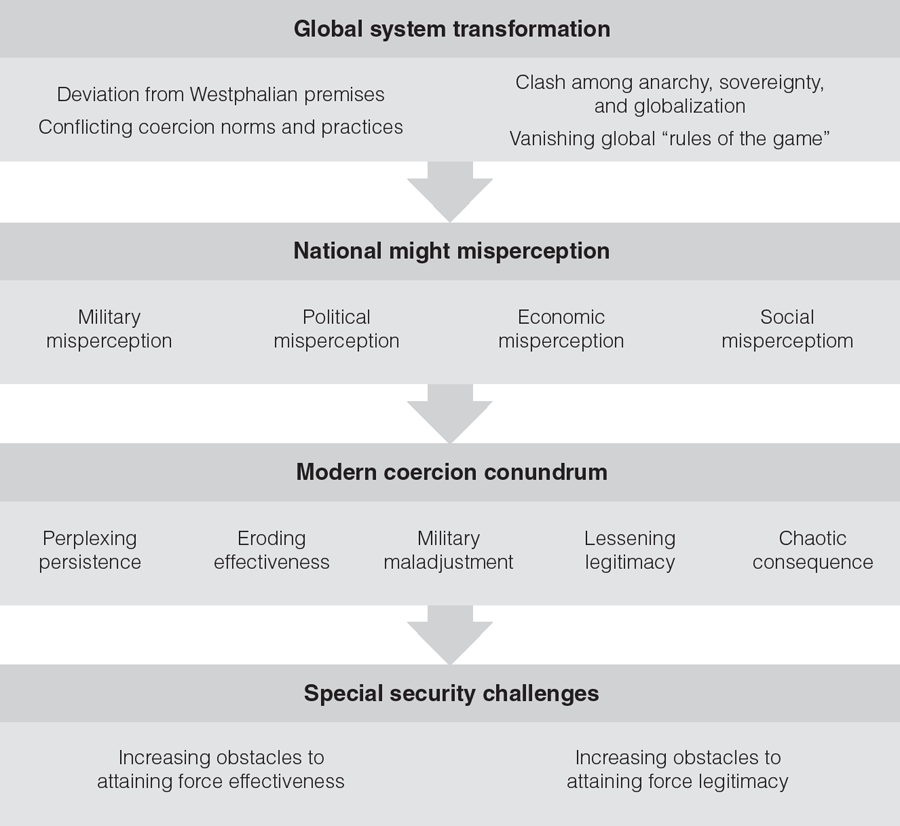
Figure 1-1. Brute force interpretive context.
Most relevant work does not concentrate on brute force, instead either more narrowly covering warfare or more broadly discussing all forms of coercion, including threats of force and shows of force. Although these broader and narrower studies are valuable for their own purposes, they do not isolate patterns of brute force success and failure. No existing study analyzes the major twenty-first-century state uses of brute force (through the end of 2013) as this book does. Many writings about force in todays world either do not confront the fundamental conceptual paradoxes involved orin confronting themtake polemical positions defending or attacking the value of applying force in most global predicaments.
Next page

